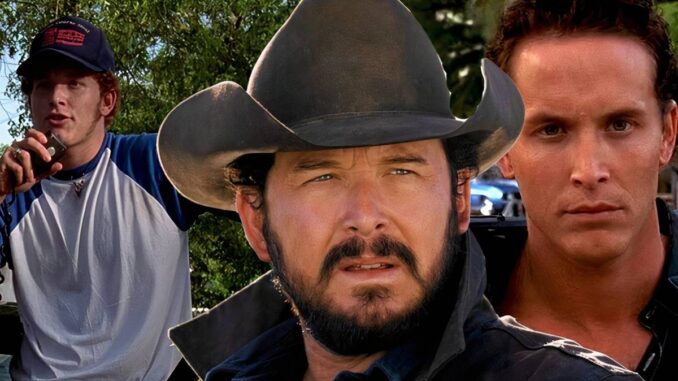
The Value of Loyalty: Rip Wheeler and the Enduring Pull of John Dutton
Cole Hauser’s portrayal of Rip Wheeler in “Yellowstone” resonates so deeply with audiences because it taps into a primal understanding of loyalty. Rip isn’t merely a henchman; he is an embodiment of unwavering commitment, a man whose life is defined by his fealty to John Dutton and the Yellowstone Ranch. To understand why Rip does what John wants, especially in the face of morally ambiguous or even brutal commands, requires delving into the specific context of his past, his connection to the land, and the specific brand of loyalty John Dutton instills.
Rip’s loyalty isn’t some blind obedience; it is forged in the crucible of hardship and reciprocated with a paternalistic (albeit flawed) devotion. John Dutton didn’t just offer Rip a job; he offered him salvation. Orphaned and traumatized by witnessing his family’s murder, Rip found refuge within the boundaries of the Yellowstone. Dutton took him in, provided him with structure, and essentially became the father figure he desperately needed. This debt, born out of profound gratitude, forms the bedrock of Rip’s unwavering dedication. It’s not simply that Rip respects John; he owes him everything. As Hauser has stated in interviews, Rip views John as a savior, a man who plucked him from the depths of despair and gave him a purpose.
This personal history intertwines inextricably with the land itself. For Rip, the Yellowstone Ranch is not just property; it is a sanctuary, a symbol of stability and belonging. He sees himself as a guardian of this land, a warrior defending it against encroaching threats. John Dutton, in Rip’s eyes, is the shepherd of this sacred space, and Rip, as his loyal dog, will stop at nothing to protect the flock. This shared understanding elevates their relationship beyond employer-employee; it becomes a symbiotic bond built on a mutual commitment to preserving the ranch’s legacy.
Furthermore, John Dutton cultivates loyalty through a specific brand of paternalistic leadership. He demands absolute obedience, yes, but he also provides for his loyal followers. He offers them a place, a purpose, and a sense of belonging within a world that often feels hostile and unforgiving. He rewards loyalty with responsibility, trust, and a degree of autonomy within the confines of his command. This creates a powerful incentive for characters like Rip to remain steadfast, even when asked to execute morally questionable actions. As Hauser alludes to, Rip understands that Dutton’s often-brutal methods are, in his eyes, necessary to protect the ranch and everyone who depends on it.
The complexities arise when John Dutton’s methods cross ethical boundaries. Rip’s loyalty is tested time and again, forcing him to confront the potential consequences of his unwavering obedience. He grapples with the moral weight of his actions, often exhibiting a haunted quality that underscores the internal conflict. He understands that what he does is not always right, but he justifies it as a necessary evil to protect something greater – the Dutton family and the Yellowstone itself.
However, this unwavering devotion isn’t without its limitations. Rip’s love for Beth, John’s daughter, introduces a new dimension to his loyalties. Beth challenges Rip to question his blind obedience, forcing him to consider the potential consequences of his actions not just for the ranch, but for his own future and happiness. She becomes a moral compass, albeit a flawed one, pushing him to navigate the treacherous waters between loyalty and personal conscience.
In conclusion, the value of loyalty, as exemplified by Rip Wheeler in “Yellowstone,” is a complex and multifaceted concept. It is not simply about blind obedience, but about a deep-seated commitment forged in the fires of hardship, reciprocated with paternalistic devotion, and intertwined with a profound connection to the land. While John Dutton’s methods may be morally ambiguous, and Rip’s actions often reflect this, the foundation of their relationship remains rooted in a shared understanding of sacrifice and the preservation of a legacy. Cole Hauser’s nuanced portrayal of Rip allows us to understand the powerful allure of loyalty, even when it demands difficult choices and comes at a considerable cost. It is this complex tapestry of gratitude, duty, and love that ultimately compels Rip to do what John Dutton wants, a testament to the enduring power of human connection and the unwavering bonds that bind us together.
